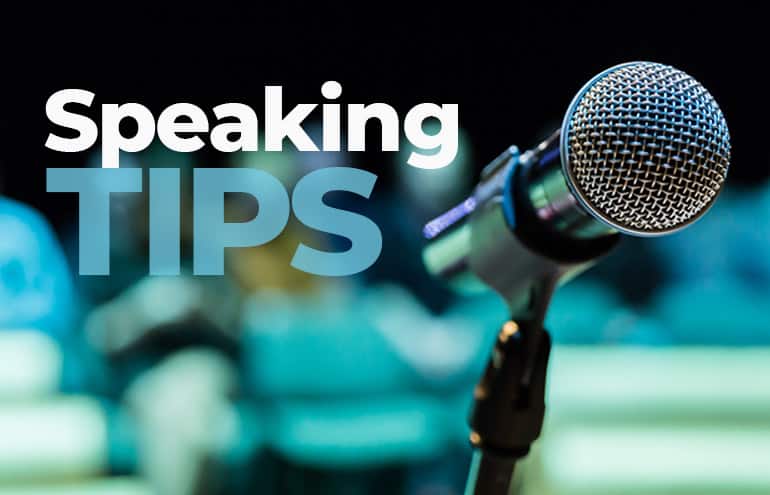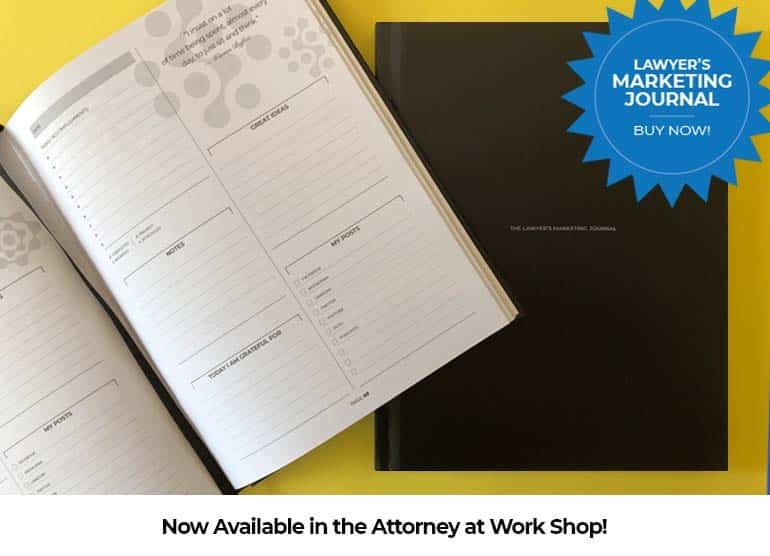If you want your introduction done right, do it yourself. If someone else introduces you, use these public speaking tips to head off blunders.

Big letters filled the screen with the title of the topic and the names, titles and affiliations of the speakers. As with all the sessions, the moderator announced, “Our next presentation will be [the topic we all wanted to hear]. I’ll let the speakers introduce themselves.”
I admired the approach and wondered why more organizers didn’t use it.
Write a Script for Self-Introductions
You can make sure your introduction is completely accurate by asking early on if you can simply introduce yourself. This works best when you are the only speaker.
I’ve frequently asked to introduce myself, not always getting a positive response. To improve the chance of getting a “yes,” say, “I’ve attached a script to show how this would work.” Create a script where the moderator says something like:
“On our next panel of experts are Thurgood Ginsburg, Sandra Day Marshall and Felix Warren. Each speaker will tell you a little bit about themselves, and their bios are included in your materials.”
Make sure any co-panelists agree with this approach. You can raise the subject at your planning meeting. Wise moderators will limit the time for self-introductions and possibly ask to preview them.
Getting It Wrong
I am an experienced speaker — experienced in every way an introduction can be mishandled, including mispronouncing my name.
I’ve had moderators bore the audience and use up my time by rattling off everything listed in my LinkedIn profile. Questioned why the introduction I provided was ignored, the program chair said he had lost it and came up with his own.
I have had rookie moderators ask for unimportant information to include in an intro at the last minute. This can be largely irrelevant. The longer you practice, where you earned your degrees becomes less important. Neither do you want to publicize prior affiliations with whom you now compete. People who are only half-listening may think you still work there.
I was once introduced as the “best lawyer in America.” Besides being ridiculous, this was wildly disproportionate to my modest purpose that evening.
You worked hard to get this gig, and now you can’t get your basic contact information in front of the audience. How frustrating!
Getting It Right
Introducing yourself assures that the information will be accurate, pithy and important. But if the moderator or sponsor insists that someone else introduce you, here are some steps to try to head off these blunders.
You may be asked to provide a bio to be included in the materials. That bio can be one or two paragraphs long. This is not your introduction.
Audiences are impatient. They may be checking their messages during the introductions. Make sure you also submit a short introduction that emphasizes the points you want listeners to know. That’s your name, accurately, your affiliation, and your relevant experience, including recognizable honors. It’s OK to include a phonetic guide to your name. To be safe, include a caution on the same page.
Here’s an example:
NOT FOR INCLUSION IN MATERIALS, FOR MODERATOR USE AT PRESENTATION ONLY
Harmineh (“Hair-mi-nay”) Helper is a partner with Advocate, Attorney, and Winner, where she specializes in environmental law. She joined the firm after serving 12 years at the EPA including as Assistant Regional Counsel in the Air and Toxics Section. She has authored numerous articles on the enforcement provisions of the Clean Air Act.
Maybe you were asked to provide an introduction when you signed on for this gig. Great! But don’t assume the issue is resolved.
What if they didn’t ask for an introduction? Provide one anyway. Send your introduction to your liaison at the sponsor and also directly to the person who will be introducing you.
One Week Before the Presentation
You’ve been busy. It may have slipped your mind to update your introduction to show you changed firms or you’re now a partner instead of an associate. Even if nothing has changed, send in your introduction again so it hasn’t disappeared into an email void.
At the Presentation
Come prepared and come early. Bring another copy of your intro. Don’t show up just in time to take the lectern or turn on your video. Come early enough to spend a minute with the moderator, hand off or resend your intro, and review how to pronounce your name. So many times, the response is, “Oh good, I forgot to bring my copy.”
If you are not planning to arrive before the day’s presentations start, check the schedule to pin down the last break time before your session.
You’re Great
Your audience may be fellow experts or newbies to the field. The introduction assures them that you are worth listening to. Don’t lose your audience before you even start. Pay as much attention to the introduction as you do to your presentation.
Image © iStockPhoto.com.

Sign up for Attorney at Work’s daily practice tips newsletter here and subscribe to our podcast, Attorney at Work Today.

Lawyer’s Marketing Journal
Teddy Snyder, author of Women Rainmaker’s Best Marketing Tips, has designed a journal that is ideal for tracking marketing and BD activities, ideas and inspiration. Undated pages give you the flexibility to start today.
















